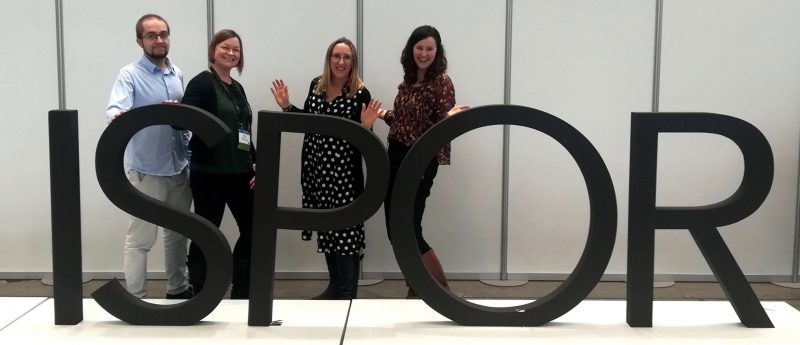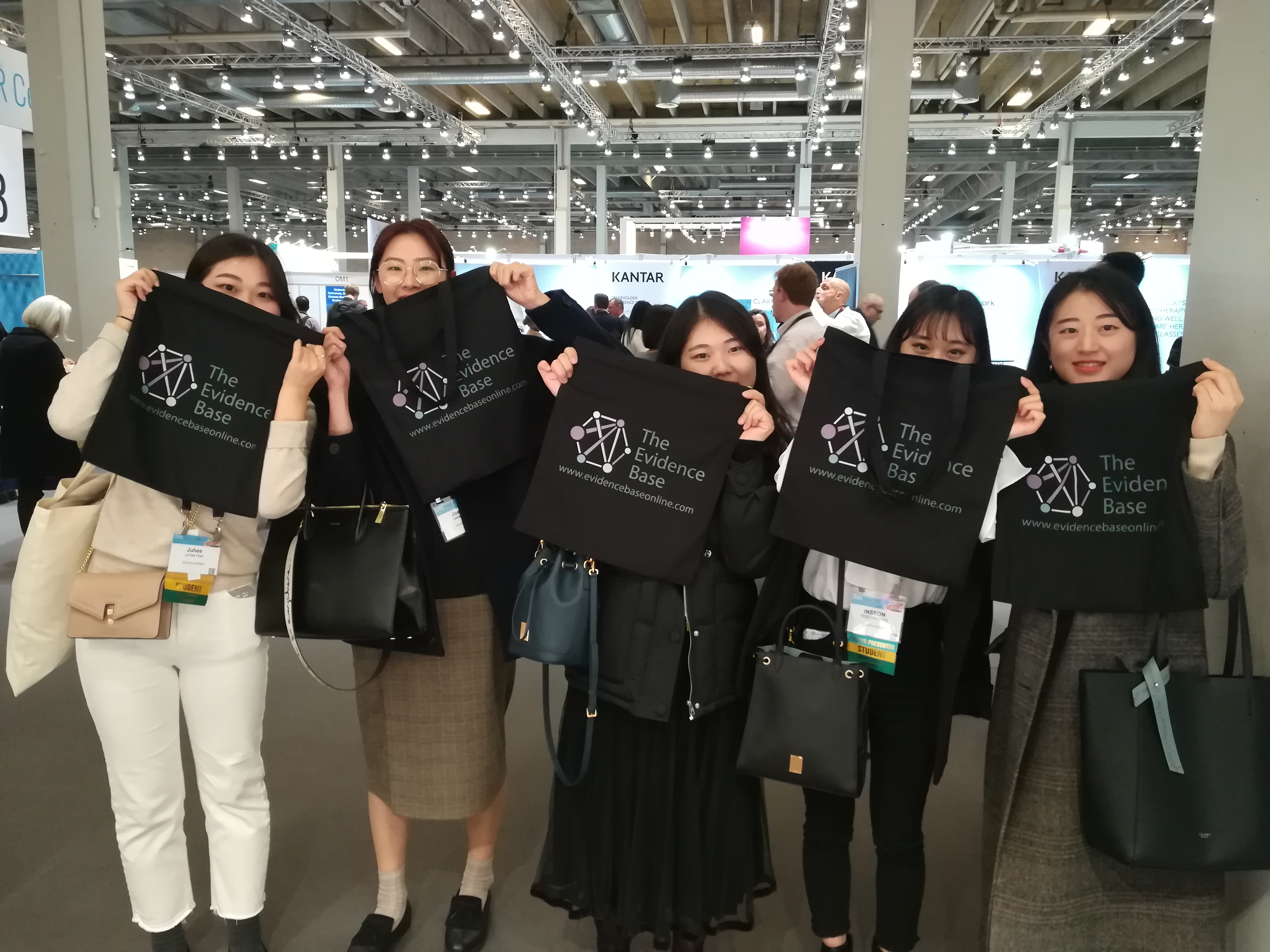Digitization and standardization: highlights from ISPOR Europe 2019

I share my highlights from the International Society for Pharmacoeconomics and Outcomes Research (ISPOR) annual European meeting (2—6 November 2019, Copenhagen, Denmark), their largest ever conference that welcomed over 5500 attendees to discuss the digital transformation of healthcare.
The International Society for Pharmacoeconomics and Outcomes Research (ISPOR) is a global professional society for all health economics and outcomes research (HEOR) stakeholders. The society’s 2019 European meeting took taking place in Copenhagen (Denmark), 2—6 November at the Bella Center Copenhagen. If you couldn’t attend, or just want to relive the highlights, I’ve summarized the key discussion points below.
Digitization is coming, but may look different to different people
The theme of this year’s conference was digitization of healthcare, and the message was cautiously hopeful. The benefits of digital healthcare are undeniable but there was also a lot of discussion around the practicalities of developing a truly digital health care system. Education, both of patients and healthcare providers, will be important to ensure parsable data are collected and are therefore meaningful and, most importantly, trusted.
Can’t wait for the discussion on shaping healthcare systems! ‘within 20 years 90% of all healthcare professionals will require some element of digital & genomics skills to work in a transformed, data-driven healthcare environment’#ISPOREurope @PetraWilson11 @ISPORorg pic.twitter.com/53g9Z5VtGO
– Titta (@rosvallpuplett) November 5, 2019
Whether digital healthcare means connected patient health records or virtual reality in surgery, an important consideration for any potentially helpful technology is the importance of falling in love with the problem, not the solution. As well as incorporating evidence and data into a potential solution, developers and researchers should be mindful that they are using evidence and data to identify an unmet need in the first place.
Good points raised in discussion at â¦@ISPORorgâ© conference 2nd plenary: Digital solutions should be demand driven – not solely supply driven. And: we need to evaluate digital solutions as we do other technologies: Are they cost-effective? Are they equitable? #ISPOREurope pic.twitter.com/0Z4b710iWs
– Dorte Gyrd-Hansen (@DorteGyrd) November 5, 2019
Standardization remains a challenge
How will a digital healthcare system be realized? Through comprehensive standards, to enable the same quality of data collection and application, and that we are speaking the same language.
Food for thought from 1st plenary at #ISPOREurope – linking datasets is the future, but we need standards to unlock possibilities. Also: convenience, compliance, traceability and transparency all need to converge to generate trust in public and private sectors. #digitalhealthcare
– Dr Nathalie Schwering (@bookishnathalie) November 4, 2019
Many plenary speakers referred to industrial actors, from Netflix-style payment plans to Coca Cola-inspired supply chains. Whilst maintaining trust and data integrity is important, is there any need to reinvent the wheel, or can we learn from more experienced players in the digital game?
European #ISPOR Congress opening on digitalisation.
Priority needs: patients #data standards and inter-operability of healthcare systems.
Great deal remains to be done. #ISPOREurope #AI #HealthData #philips #Microsoft #flatiron pic.twitter.com/7iCuVUaWrQ
РFran̤ois-Emery Cott̩ (@FE_COTTE) November 4, 2019
Patient focus is crucial for patient engagement, and subsequently improved outcomes
Finally, involving patients in every step of the process is as important as ever. It was telling that two of the plenary sessions this year included patient advocates, and many of the other speakers had experience of working with patient organizations.
If there is no patient input in developing and interpreting data, there is no validity to the data. – @schrandtsuz at #isporeurope
– ISPOR (@ISPORorg) November 5, 2019
Without patients, there is no data so it’s important they feel ownership of it. Highlighting the benefits of shared and applied data could be one way to incentivize interoperability of data.
Finally, involving all stakeholders and being aware of knowledge gaps or limitations will be important to enable digital healthcare to live up to its potential and benefit as many people as possibly.
Patients are experts by experience, and we‘d do well to involve them at every stage of developing apps, drugs, digital therapeutics. Find out more about the (sometimes surprising) insights we have garnered from authentic #patientexperience using #AI at #ISPOREurope booth C2-010 https://t.co/Ip6fkozA9o
– Semalytix (@semalytix) November 5, 2019
Speaking in a press release, ISPOR CEO and Executive Director Nancy S. Berg commented: “ISPOR Europe 2019 featured many innovative sessions centering on healthcare transformation fueled by digital technologies. ISPOR’s largest conference to date (with more than 5500 registrants) convened a wide variety of healthcare stakeholders to help solve many of the challenges that impact healthcare and to advance HEOR excellence to improve healthcare decisions globally.”
The Evidence Base and the Journal of Comparative Effectiveness Research
Thank you to everyone who came to visit us at our booth, or who took the time to discuss their presentations and research in a ‘look behind the lecture’. We were honored to be the media partner for ISPOR Europe this year, and hope we did the event justice with our coverage.

Is there content or a different format you’d like to see next year? Share your feedback below!
